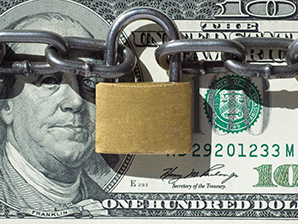Cash serves an important purpose in many investment portfolios, but as the stock market fluctuates, many investors turn to investment to avoid losses. However, depending on the reason, moving all your investments from stocks to stocks can be a huge mistake. Even during the bear market, holding a heavy portfolio can cost you more money than you realize. Instead, consider spending money and allocate only a portion of your money to this category of assets.
Read More:
Is Cash Trash This Should Be Your Cash Allocation in a Bear Market
Stock
Cash serves an important purpose in many investment portfolios, but as the stock market fluctuates, many investors turn to investment to avoid losses. However, depending on the reason, moving all your investments from stocks to stocks can be a huge mistake. Even during the bear market, holding a heavy portfolio can cost you more money than you realize. Instead, consider spending money and allocate only a portion of your money to this category of assets. A financial advi...
Avoid UiPath Stock Until It Gets Back on the Right Trail
Stock
Nasdaq bear market disrupts UiPath stock performance In hindsight, UiPath's (NYSE: PATH) business sounds like a new distraction. Robotic process automation, or RPA, handles repetitive tasks that can make digital transformation real. But the UiPath stock does not buy well here. But what about it? Why has PATH stock dec...
A financial advisor can help you re-evaluate your portfolio and select an investment that fits your financial goals. Get a trained mentor today
Three Reasons to Make Money A Lost Proposal
In a situation where high inflation and rising interest rates are new trends, your dollar value drops daily. Those losses of purchasing power can increase significantly over time, and by not investing in securities stocks or high-yield bonds, investors are losing out on interest rates.
An average 3% inflation rate will deplete $ 100,000 in real purchasing power by 14% over five years. Over 10 years purchasing power will decrease by 26% and over 20 years, the $ 100,000 cash loan will only be worth $ 55,368. In this case, a portfolio covering all cash flows is still losing value over time, although the dollar value does not seem to change.
Another downside to investing in investments is the current low interest rate on short-term investments. If an investor transfers all the money to a regular savings account or stock market, looking for short-term cash and bonds, higher incoming bond yields will lower the value of those fixed investments. Even then, short-term bonds often repay more than cash holdings.
Because of the market turmoil, some investors may decide that withdrawing money from riskier, growth assets and investing all over them can protect their money. But in doing so, these investors offer the potential for financial investment.
How Much Money Should You Hold Back?
Even in his solid model portfolio, Charles Schwab allocated only 30% of the investment. The remaining up to 50% of fixed income securities and 20% are in stock.
In a 2021 World Wealth Report, Capgemini reports that the world's most valuable people have allocated between 21-28% of their assets to earn money over difficult years over the past two decades. 20-30% is allocated to fixed income, the other 20-30% is kept in stock. If or when the economy heats up again, these savings will help investors buy cheaper homes, shares and other assets.
Well-known investor Warren Buffett also believes that cash is essential in emergencies, and his company Berkshire Hathaway holds $ 144 billion in cash or cash equivalents even now. In his annual letter to shareholders, Buffett noted that he "always keeps 80% of his assets in the stock market," and so far, he and his partner have never received any "exciting" deals to buy stocks publicly traded.
He says that, although "they have endured the same heavy responsibilities from time to time in the past, these positions ... will never last."
Indeed, a Schwab study shows that the average bear market lasts for 15 months with a combined loss of 38.4%. On the other hand, the average bull run lasts for 6 years, bringing in more than 200% gains. Given that bear market recovery is often overlooked, perhaps making sure you have enough money to take advantage of those opportunities would be the best solution.
Bottom Line
Savings are an important part of an investor's portfolio, but looking to hold all the money during a market downturn can be a big mistake. Inflation undermines the ability to buy cash over time, and cash flows often result in loss of more profitable opportunities over time. Instead, store investors can follow the lead of many other rich people and save a healthy amount of money while keeping one of their shares allocated to them. 20-30% of cash allocations can allow investors to protect their investments from major market crashes and to have a pillow left to buy when the economy recovers in the future.
Wealth Building Tips
Not sure which combination of assets and strategies will help you meet your long-term goals? For a solid financial plan, consider talking to a qualified financial advisor. The free SmartAsset tool equates you with up to three financial advisors working in your area, and you can negotiate with your analyst free of charge to decide which one is right for you. When you are ready to find a mentor who can help you reach your financial goals, get started now.
Use the free SmartAsset investment calculator to get a good estimate of how you can grow your money over time.
Read More
Courtesy Grizler.com
SPONSORED HEADLINES




